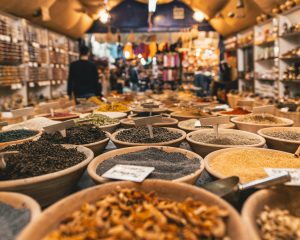The Slow Food Movement: Fighting Food Insecurity
The global issue of food insecurity affects millions of people every day, causing hunger and malnutrition, and even leading to long-term health problems. It is a complex issue that has been exacerbated by many factors, including poverty, political instability, environmental challenges, and corporate control over the food industry. In the midst of this crisis, there is a growing movement known as the Slow Food movement, which is fighting back against food insecurity by promoting sustainable, local, and traditional food practices.
The Origins and Principles of the Slow Food Movement
The Slow Food movement was founded in Italy in 1986 by Carlo Petrini, who had become increasingly concerned about the impact of fast food and industrialized agriculture on local communities and traditional food cultures. Since its inception, the movement has spread to over 160 countries and has become a global network of activists, farmers, chefs, and consumers who are committed to a better food system.
Slow Food and Food Insecurity
One of the main goals of the Slow Food movement is to combat food insecurity by promoting sustainable and responsible practices in food production, distribution, and consumption. This includes supporting small-scale and local farmers, promoting biodiversity, and preserving traditional food cultures.
Industrialized agriculture, with its focus on monoculture and mass production, has led to a reduction in crop diversity, the depletion of soil health, and the contamination of water sources. This not only affects the environment but also impacts the nutritional value and quality of the food that ends up on our plates.
Moreover, corporate control over the food industry has contributed to the marginalization of small-scale farmers and the concentration of profits in the hands of a few large companies. This has led to further inequality and food insecurity, particularly in developing countries where many people rely on small-scale agriculture for their livelihoods.
How the Slow Food Movement is Making an Impact
Supporting Small-Scale Farmers
Through its various programs and initiatives, the Slow Food movement is actively working to support small-scale farmers and producers and ensure their access to fair markets. One such initiative is the “10,000 Gardens in Africa” project, which aims to create gardens and small farms in communities across the continent to promote food sovereignty and resilience against food insecurity.
Promoting Biodiversity
The Slow Food movement is also committed to preserving biodiversity and protecting endangered plant and animal species. This includes promoting and reviving traditional and heirloom crops and animals, which not only contribute to a more diverse and nutritious food system but also help to protect the environment and support local economies.
Preserving Traditional Food Cultures
The Slow Food movement recognizes the importance of traditional food cultures and the role they play in maintaining social connections and cultural identity. By supporting and promoting traditional food practices, the movement is helping to protect and preserve these valuable cultural heritage and promoting a more diverse and sustainable food system.
The Slow Food Movement and You
As individuals, we can also make a difference by supporting the principles and practices of the Slow Food movement in our daily lives. This can include buying from local and sustainable sources, reducing food waste, and advocating for policies that support small-scale and traditional food systems.
The Slow Food movement is a powerful force in the fight against food insecurity and the destructive impacts of industrialized agriculture. Through its commitment to sustainable and responsible food practices, it is not only promoting a more equitable and healthy food system but also empowering individuals and communities to take control of their own food sources.
In Conclusion
Food insecurity is a global challenge that requires a multifaceted approach to address. The Slow Food movement offers a solution by promoting a more sustainable, diverse, and equitable food system that benefits both people and the planet. By supporting this movement, we can all contribute to a brighter and more secure future for our food and our world.








